Sky Comedy Rep: Writers interview
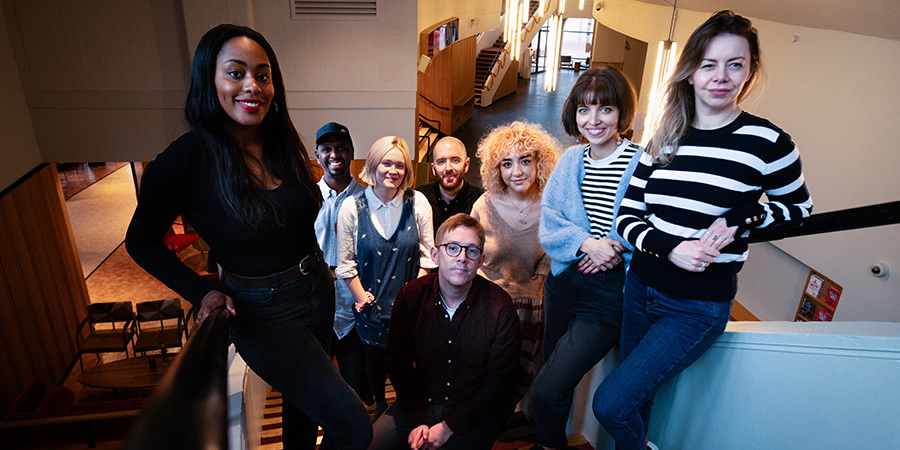
Alice Etches, Aoife Kennan, Asia Wray, Doug Crossley, Georgie Morrell, Hattie Soykan, Mahad Ali and Tom Critch were the eight people selected for the Sky Comedy Rep 2022/2023 scheme, a partnership between Sky Studios and Birmingham Rep that sees writers embark on a six-month paid training programme to develop a new piece of work, mentored by some of the UK's best comedy writing talent. As they prepare to showcase their new plays as part of the Sky Comedy Rep Presents Parklife festival, we talk to the writers to see how they got on in the programme.
When did you decide you wanted to become a comedy writer?
Alice: When I was in Year 7, I wrote and performed an impressions show at my school's Christmas talent show, and I loved the humiliation so much I thought yeah - this is what I wanna do. After university I started performing a few short plays I'd written at new writing nights across London, but it was only after getting a few credits on BBC's NewsJack, and having success in a few writing competitions that I had the confidence to think 'ok, maybe I am quite good at this!'. I've always loved comedy, both writing and performing it, and besides a brief stint of wanting to be a pathologist, I can't think of anything else I'd rather do.
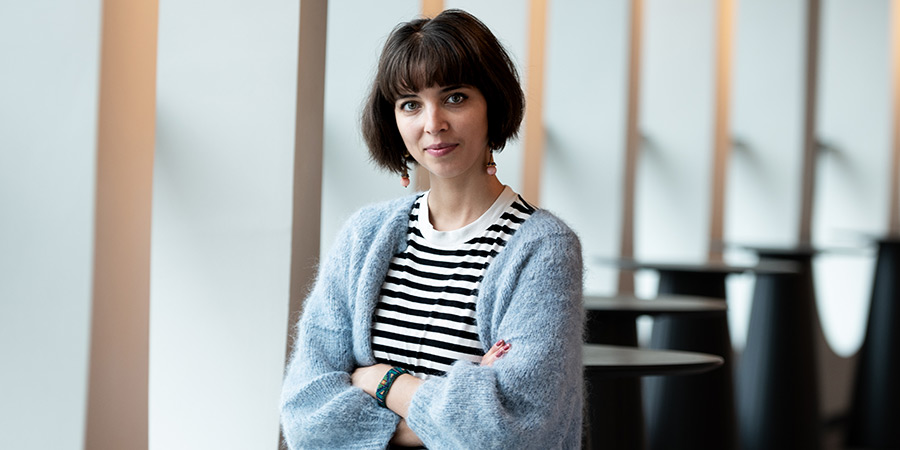
Aoife: I still don't know exactly what kind of writer I am, if I'm completely honest. Even calling myself 'a writer' makes me pull an awkward face, but I probably need to get over that. I think my taste is perhaps more comedy drama than pure comedy, although I do think laughter can be a great way into dark subject matter.
Asia: Bruk Pocket Gyal is my first outing as a comedy writer. I have always had an interest in comedy, and I recently decided to immerse myself fully. My comedy writing is heavily influenced by my nan, she is quick witted and armed with one-liners often said in patois. To showcase what I have learnt from my nan within my writing is exciting.
Doug: About ten years ago. I'd been writing theatre since I was a teenager, mostly drama, and I knew that I wanted to have a go at creating TV shows like some of those I'd grown up watching. I think it's taken me ten years to commit to calling myself a comedy writer. I was fearful of "trying to be funny". I really hate comedy that tries too hard. I find it really awkward watching stand-up or improv because I can see the cogs turning. Lots of my friends are seasoned haggard stand-ups and improvisers, maybe I've just tired of them trying material out on me. On Sky Comedy Rep, I think for the first time I've had "fun" writing jokes. But I am no fun to be around when I'm watching the work. The actors are great but I sit there stony faced like Alan Turing watching the first run of his enigma machine (or Benedict Cumberbatch's portrayal of him on film). It probably wasn't called an enigma machine, was it?
Georgie: I guess when I realised it made me happy, I can do it from my bed and with my cat next to me! I had always wanted to be a writer. I am, by nature, very nosey and funny so simply put the two together. A curious nature is key to being a great writer. I am a firm believer in doing a job that makes you happy. I am happiest when writing!
Hattie: Making people laugh is the coolest form of instant gratification, right? Someone is literally bursting with joy because of something you said! That's very cool. Growing up, I would watch my favourite sitcoms over and over; dreaming up my own storylines, writing down snippets of dialogue, and becoming enveloped in the rich worlds I saw on screen. Fictional characters became my friends and we shared tonnes of inside jokes. Building fictional universes, inventing flawed and funny characters, and finding light in even the most complex parts of the human experience became my favourite pastime. When I realised that I rarely saw people who looked like me or had similar lived experiences to mine on screen, I started telling those stories, too. Eventually, I dropped out of a Physics degree - much to the dismay of my strictly academic family - and decided to do what I loved instead. So here I am, still making up silly little people in the hopes that other people can relate to their silly little predicaments, and maybe have a little chuckle along the way. Like I said, humour is cool, it's really as simple as that.
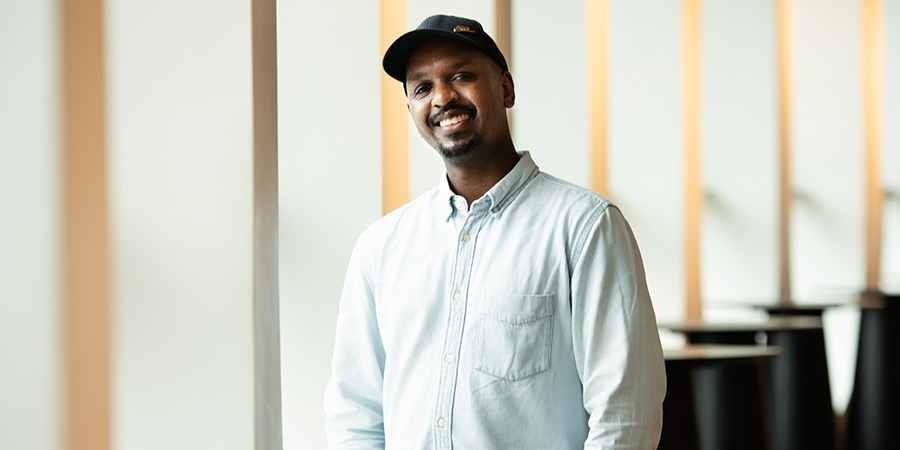
Mahad: Growing up I was always a fan of Black British comedy sets like The Real McCoy and Desmond's, which reflected us on stage in fun and truthful ways. As in our communities, everything is delivered with such emotion and passion that even a simple trip to the shops or the market with your mum as a kid could turn into the best moments of comedy. So I was always interested in presenting this to the world and also unpacking difficult topics in only a way comedy can.
Tom: The real kicker came when I was 14 and two things happened. I saw Withnail & I and read Fear & Loathing In Las Vegas for the first time. Jesus they blew the roof off my head. I didn't know you could use language like that. I bought the screenplay for one and the VHS for the other and used to write my own little scripts on a painfully slow late 1990's Microsoft Word. Formatting those bastards gave me splitting headaches but I was determined to learn how you wrote something really really funny. Still learning so please bear with.
What has the Sky scheme been like to be involved in?
Alice: It's been a really interesting experience, and I've learnt a lot from it. It's been a while since I've written for stage - I started out my career as a comedy writer by performing my short plays, so I've really enjoyed returning to it. It's been a challenge for me to write a script and then step back and let a director take control of it. I've written quite a few short films and have always had a role acting in, casting and producing them - so to solely be involved as a writer and hand over creative control has been an important lesson for me. It's also been such a pleasure to meet the other creatives on the scheme. Everyone at the Rep and at Sky has been so welcoming and friendly! The other writers are so talented, and we've built a real support network. My director, Lorna Laidlaw, has been really wonderful. She's put so much thought and love into the play, and has been on the same page as me since day one. It's such a great opportunity and I feel very lucky to be a part of it.
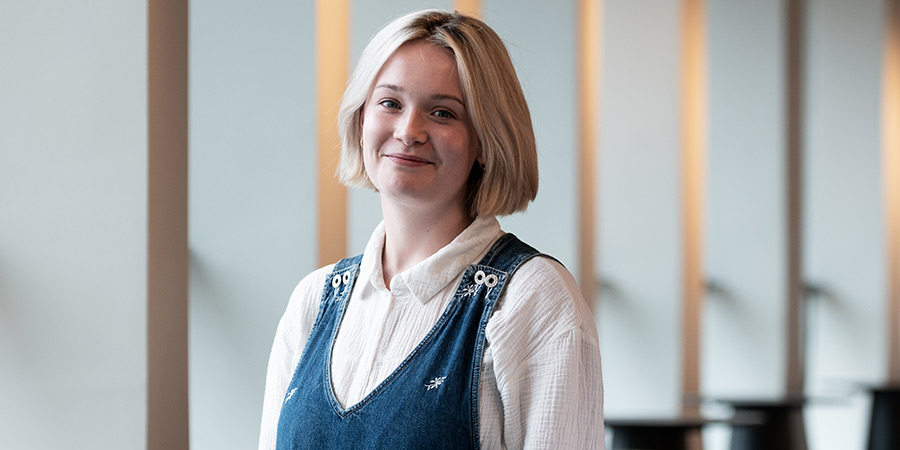
Aoife: It's been a lot of fun! Everyone involved on the scheme has been such a delight to meet and work with - but I guess you'd hope for that on a comedy course. It was so validating to be chosen, and for other people to invest in my writing. As an emerging creative you spend so much time working for free to try and get your work seen, so it also means a lot that this scheme is paid. We're into the magic bit now where the actors and directors are bringing it all to life and making it real.
Asia: The Sky scheme has been an amazing experience to be in involved in, I burst into tears of joy when I found out I got onto the scheme. The scheme has been a great platform as an unrepresented writer to learn about the industry and get my work on stage.
Doug: In continuation of the previous answer, I'd say it has shunted me closer to calling myself a comedy writer. I didn't join the scheme as a newcomer, so for me it's been a process of refining how I work and making it a bit more deliberate. The team they've assembled is really great, and you get an industry mentor in the process (which is priceless). Overall, it's been enlightening, a mixture of learning new stuff and learning to trust stuff I already knew. There should be many many more opportunities for writers to be paid within a development scheme. Especially if you come from a working class background like I do. You need creative support but also literal financial support to be able to continue in this industry. I'm glad the programme exists and I hope it continues to grow and develop.
Georgie: Almost too good to be true! I not only got to write a play based on an idea close to my heart but I got to do with the help of a super clever and funny creative team. The dream!
Hattie: The scheme has given me the opportunity to work with talented people in the industry who I would ordinarily not have access to. We've been allowed the freedom with which to tell the stories we want to tell, with invaluable feedback to better those stories so they can reach their fullest potential. I've substantially grown as a writer after being encouraged to continually push myself and self-edit. The scheme has felt like a safe space in which to try new things. Turns out it's okay to tell some bad jokes, even if it makes you want to shrivel up and die inside.
Mahad: Fun and experimental. Being able to be given the space and the time to work with talented actors and directors that can play with your work and bring their own twist to it. Then being able to test material out in front of a live audience and learning what sinks and what swims is just invaluable. Then on the development side working with the team at the Rep and Sky on scripts and having their input, pointing out things we've missed or how we can get more out of comedic moments is great learning.
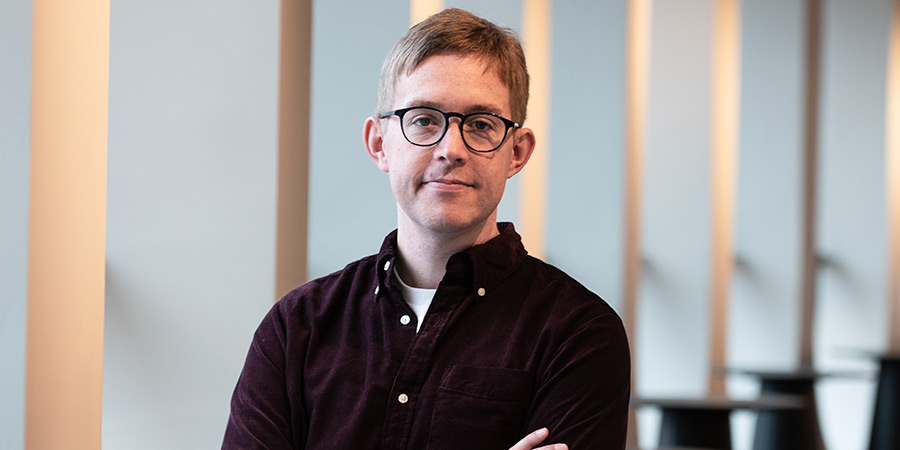
Tom: This is my first taste of legitimate big school fancy pants production stoof so I hadn't a clue what I was walking into but the entire scheme has been a huge privilege from start to finish. The camaraderie amongst the writers is fab and the support, not only from Sky but the fine folks at the Birmingham Rep, has been absolutely wonderful. It's coming around again next year so get scribbling!
Can you give us a specific example of something you've learnt/improved as a result of the tutoring/mentoring?
Alice: My mentor sessions have been like therapy! It's been so refreshing to hear from someone with such an impressive career to talk so openly and honestly about their experiences in the industry. Comedy can be such a lonely and difficult career sometimes, and I've been reminded to re-evaluate what "failure" and "success" really mean. Failure is just a part of life, and let's be honest, the bigger the failure, the funnier the anecdote.
Aoife: I think learning how to take notes and feedback has been a massive part of this process - especially when you're getting multiple notes from multiple different sources who don't always agree with each other! Prior to this, I've only ever worked with trusted friends and collaborators, so it's both exciting and terrifying to let new people in on your work. It's taught me to challenge myself and my writing, but also to sometimes buckle down and trust my own instincts, if that's not too much of a contradiction?
Asia: To be mentored by Daniel Lawrence Taylor was invaluable; I really enjoyed getting to know him and understanding his journey. The importance of the inclusion of strong distinctive characters was discussed. It is imperative characters are memorable for the right or wrong reasons. I hope my audience walk away with a clear sense of character and story from my work.
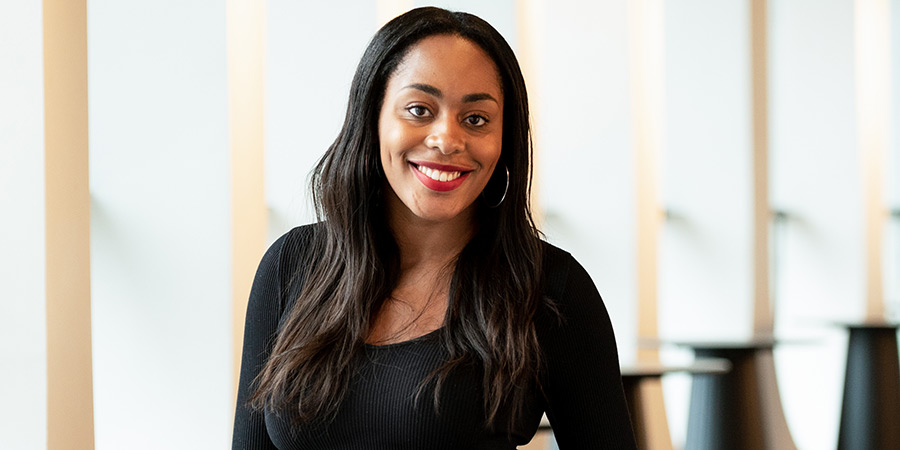
Doug: Learning the difference between an amusing moment and a laugh point. I love honest and direct notes (I cry privately afterwards) because you get to see exactly what's working. I recall a really useful moment where we talked about how committing to a laugh point is better than slightly stuttering in stuff that's just sort of "generally amusing". My stand-up friends tell me there's no better challenge to your joke writing than to stand in front of an audience and watch them sit in silence at a joke you thought would work. I'd encourage comedy script writers to sit amongst the audience as they do not find a moment funny. It's easily just as painful.
Georgie: I had a few health issues during the scheme and my mentor gave me so much self-belief. It's easy to beat yourself up in this industry, especially when you're not match fit. She helped restore faith in myself that had been starting to ebb exactly when I needed it most. So, I guess what I learnt is to not be afraid to ask for help when you need it. Sometimes all we need is reassurance were doing a good job to get us back in the game.
Hattie: Throughout the scheme I was often reminded to pinpoint characters' goals and motivations. I continually asked myself what each character wants from a scene, how they plan to get it, and what obstacles are standing in their way. This helped each of my characters feel like multifaceted, relatable people whose actions and dialogue could always be explained by their core truths.
Mahad: For me, coming into the scheme, I wanted to learn more about comedic timing, how to build up to that big moment and land what I was trying to get across. Our dramaturg and course lead Dec Munro has been great at challenging me in terms of timing and pace of my material. Whilst I've been mentored by Liam Williams, the creator of Ladhood, whose insights into his own career and just having informal chats with me about my journey have really helped to shape how I think about all of this as a career.
Tom: Dec Munro, the dramaturg and turtleneck savant who's been guiding us through the process, said something during one of our Zoom sessions that has really stuck with me: don't worry about the gags amigo, concentrate on the structure. When you're writing comedy making it laugh out loud funny is top of your To Do list, but he made me realise that your natural comedic instincts will kick in so worry about the scaffolding of the story first. The jokes come later, get the story watertight first.
Doug: It's tricky to watch an actor respond to a script you've written, they bring all their own stuff to it. Sometimes they add stuff that you didn't see before, which is great, and sometimes you have to have courage to say that you don't think they're quite finding what you intended. Learning when to be open minded and when to hold my ground is a challenge I've relished.
What is the title of your play, and what is the premise?
Alice: My play is called Patch, and follows three characters who all need to confront a change in their life, but don't know how. After receiving some life changing news, Nigel has detached himself from reality and retreated to his allotment, but his peace is interrupted by Cynthia (his friend and neighbouring gardener) and daughter Maddy (who he'd like to add is a very important neurosurgeon). Turns out they both have news too. Expect miscommunications, revelations, reflections, and a lot of cabbage chat. It's about life, death, and making the most of the time we have.
Aoife: My play is called Immaculate- it's about two friends who panic about being in their late twenties and so make the completely rational decision to have a baby together using DIY artificial insemination. It's based on a promise I made with my own friend back in university, if we found ourselves single at thirty-five. This was back when we were nineteen and thirty-five sounded ancient. For the record, I would just like to state that thirty-five is very, very young. I'm currently twenty-eight and demand my right to be seen as a mere babe in arms.
Asia: Bruk Pocket Gyal focuses on three sixth formers from Birmingham, with a history of scheming to make ends meet. Upon learning of Michelle's impending eviction, the trio enter the local community dance competition. As the self-proclaimed Beyoncé of the group, Michelle leads the charge with her stiff counterparts in support.
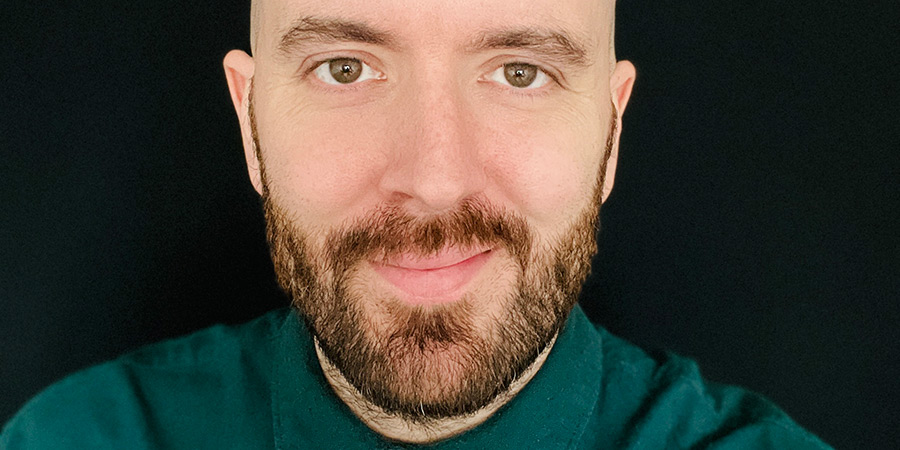
Doug: My play is called Tree Shall Not Be Moved. It's about a young gay kid in Stoke on Trent who wants to save a tree from being cut down. But in trying to save the world he realises his world might be falling apart. It's about a family in addiction recovery trying to find peace whilst fighting for their environment.
Georgie: The Start of a Beautiful Friendship follows the dysfunctional relationship of Mollie and Nasreen. Mollie is running for election to the school council, best friend Nasreen is doing her best to help, but they're nerds. They have a decision to make, attend a party held by the most popular girl in school to win votes, or call forth the powers of the Dark Lord.
Hattie: Arranged Nikah tells the coming out story of a young Muslim woman whose conservative mother, in an effort to suppress her sexuality, sets her up for an arranged marriage with a man she's never met. Family secrets rise to the surface, an unexpected romance blossoms, and Colin the Caterpillar shatters gender norms.
Mahad: Black Men Fishing. Based on the premise and notion if you go down to your local marshes, pond or river you never see Black men fishing. So challenging that notion in a really fun way through characters Debo and Remi who head to the local pool for a day of fishing, and father and son bonding, but rather than fish, they're both about to catch a big surprise...
Tom: It's called Suckers and it's set at the arse end of the 19th century. London is under siege from warring factions of vampires and only a melodramatic priest and a livid scullery maid can stop them! *DUM DUM DUM* There's musical cues and schoolboy innuendo a'plenty. Hell it's basically an excuse to roll out all the vampire cliches and celebrate pure unbridled daftness for fifteen minutes. Dewi Johnson the director told me on our first meeting he loves restoration comedy and Joe Orton, so I knew instantly he was the right man for the job! And let's be honest after the shitshow the last few years has been I reckon we could all do with a laugh!
Writing for the stage is different that television/radio. How have you found the process? How many drafts did you go through?
Alice: Well I haven't had one of my TV scripts commissioned (feel free to get in touch guys), so it's been great to see my script actually come to life! As with most of the scripts I write, the storyline in Patch is driven by the characters and their relationships. With a TV script you can really go into detail on the actions and detail nuanced moments, and you don't have to worry too much about transitions - an editor can magically stitch it all together. So when it came to writing Patch for stage, the biggest challenge I found was structuring the piece to make sure that the characters motivations and actions built in a way that felt authentic, but were also entertaining.
Aoife: I'm a theatre baby and I've only ever written for stage, so actually my next challenge is to try and move into writing for screen. I've done quite a few drafts, and had lots of help from brilliant writer-actor friends reading aloud for me around my kitchen table. Hearing your work performed can very quickly tell you what's working and what isn't.
Asia: I went into the scheme with the quote 'writing is rewriting' and was open to learning about the art of writing for stage and the many drafts which come with it. I think I went through 4 official drafts, however unofficially a lot more. I came to the conclusion I needed to let go and not aim for perfection and once I did this, the words started to flow more easily. As Bruk Pocket Gyal is my debut comedy I was very nervous to see how it would translate on stage, and I am thankful for the scratch comedy night held at the Birmingham Rep, which allowed me to see what worked and didn't work ahead of the final performance.
Doug: I have written between ten fifteen drafts of this fifteen minute play. There is writing comedy, then there is writing plays, then there is writing comedy plays, then there is writing fifteen minute comedy plays, and the latter is a very tight brief. But that, I think, is a very useful way to learn. It's painstaking. But you can't budge. You can't fuck about. You have to get in, and get funny, fast. I've always, and will continue to, derive comedy from story. This process has really challenged me to learn to do that quickly. I don't think I'm an expert yet, but I've improved a little.
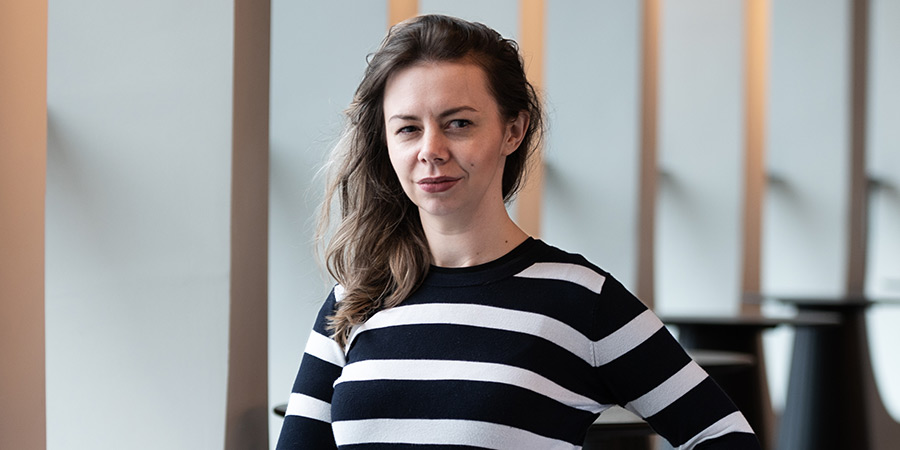
Georgie: About a million! Maybe I exaggerate but I went through a lot and I don't see that as a negative part of the process, You only get better by practise and each draft explored a new journey for my characters until, like goldilocks, I found one that was just right. I learnt that theatre needs to be big! Go hard or go home! It took me a while to find the confidence to do that but once I did it was so liberating and has opened up a world of possibility which will feed into all my script writing.
Hattie: Writing for stage comes with certain restrictions that you don't traditionally face in other mediums. You're usually confined to a set, fewer characters, and real-time dialogue-driven storytelling. It's great because it forces your writing to use those limitations to your advantage - reaching depths you might not have considered otherwise.
Mahad: The fun thing about theatre is the ability in rehearsals to shape and change things right up till the last minute. Whereas with TV/Radio it needs to be completely polished before it gets into the actors' hands. We went through three different drafts and the piece has changed each time along the way with new bits added. For comedy, it gives space for you to find moments that you hadn't even noticed which bring out some special in the piece.
Tom: I was on the Liverpool Everyman Theatre's Young Writers scheme a bazillion years ago so writing for stage is something I've always gotten a kick out of. There are things you can do during a live show you can't in TV/radio, which can either take the roof off or go down like a fart in a lift. We went through 5 drafts; the first was a decent stab the second was a car crash the third was getting its act together, and 4 & 5 I've tinkered.
Alice: Given we were in one location for 15 minutes, my biggest concern was keeping the audience engaged throughout. I didn't want to over-exaggerate anything or turn the play into a farce, the comedy comes from the characters flaws, quirks and observations, so I spent a lot of time tweaking dialogue with each draft. The staging of the allotment was essential to the script, and working with my brilliant director, Lorna, and The Rep, we've managed to create a set that works as a playground for the script. A major theme in the play is change, and the allotment represents a place that is constantly changing - so it's been incredible to see it come to fruition (pardon the pun).
What do you hope to do next/are you doing next?
Alice: I really want to continue building on my writing credits, so I hope to write on more upcoming TV/Radio series. I've also just finished writing a new pilot for TV, so trying to find a home for that... I started stand-up this year, so I'm currently writing new material for that. I'm also in post production for a short film called Stil Life that I co-wrote, so once we've finished editing it we'll be entering that into some film festivals! I'm also planning on filming Patch as a short later in the year. I also just started boxing classes so hoping to take on Mike Tyson in the ring next year. Otherwise, just sort of staring blankly into space, patting my cat on the head, and eating peanut butter.
Aoife: I'm performing my play, SCRATCHES, a funny show about self-harm, at the Clapham Omnibus in June. We had a great run at the VAULT Festival earlier this year and received an Office nomination, which really meant the world. It's a very special show, and very personal to me, and I'd love for it to have a future life. I currently work as a tutor, rinsing my English degree for all it's worth, but I think the dream is to one day be able to make a living as a creative. My dad also regularly reminds me that it's never too late to retrain in medicine or law.
Asia: I hope to work on more projects across stage, television and radio. This opportunity has further cemented my dream to be a storyteller. I can't wait to see what opportunities arise from my involvement with this scheme.
Doug: I'd love to break into TV so I'm refining a couple of speculative scripts at the moment. I'm also currently redrafting a full-length play. And I am flirting with doing another solo show 🤮
Georgie: Firstly, I plan to have a large wine and pat myself on the back for a job well done. I encourage all writers to do the same when the opportunity arises. Then I will go back to the keyboard and keep writing. It makes me happy, it's free to do and the only way to get better, is to keep at it.
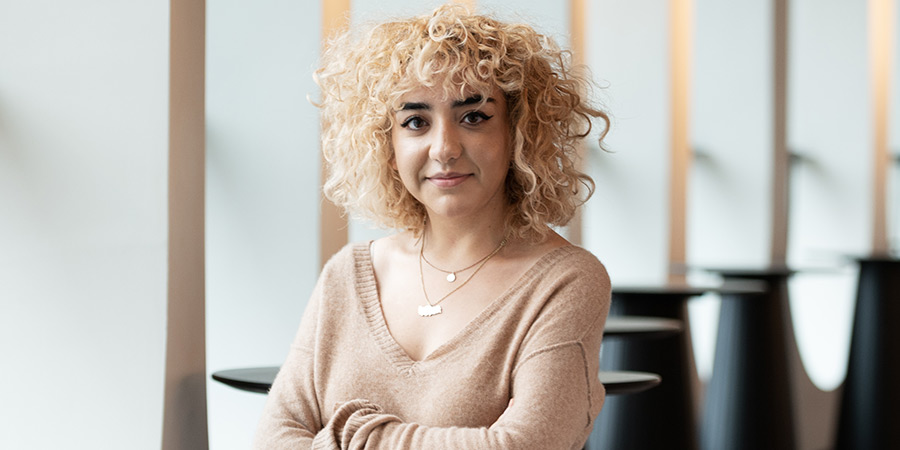
Hattie: I want to continue telling stories, duh! Television has always been my favourite medium so I'd love to write a TV comedy. That said, after my experience with Sky Comedy Rep, I'm keen to go out of my comfort zone and try new things. There are so many stories to tell and so many ways to tell them.
Mahad: I'm currently working on original specs and ideas for television so for any production companies looking for original Black British comedy/drama get in touch and let's talk!
Tom: Get an agent. Get more shit made. That's the plan anyway, everything is chance and timing and luck and happenstance so I'm just gonna keep typing and see what happens. If you're in Birmingham between 22nd - 27th May then hope to see you at the show!
This article is provided for free as part of BCG Pro.
Subscribe now for exclusive features, insight, learning materials, opportunities and other tools for the British comedy industry.

